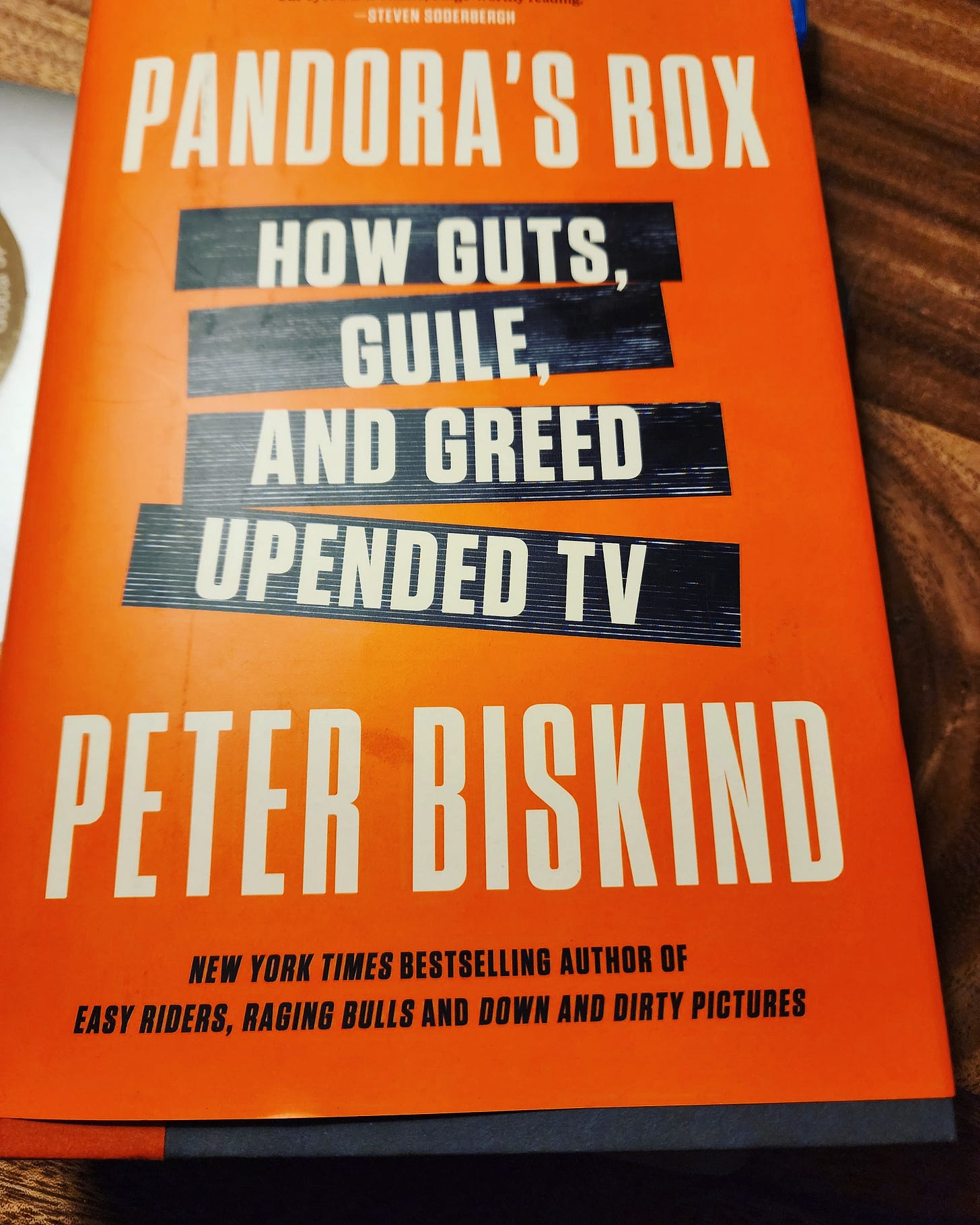HBO TO FX TO NETFLIX TO ?
Peter Biskind's new book focuses on the personalities who redefined what we watch
I’ve been a fan of Peter Biskind since his tenure as executive editor of Premiere magazine from 1986 to 1996, and greatly enjoyed his two previous movie history bestsellers, Easy Riders, Raging Bulls, about the rise of the movie brats Spielberg, Lucas, Scorsese etc, and Down and Dirty Pictures, that looked at indie film’s growth in the ‘80s and ‘90s. As a rule, Biskind’s work is heavy on the personality and egos of the filmmakers and executives, and very summary on criticism. His strength is using his access to provide an inside baseball view of what we watch and how it was financed.
His latest effort, Pandora’s Box: How Guts, Guile, and Greed Upended TV, looks at the journey we’ve taken from HBO revolutionizing cable to the streaming revolution ignited by Netflix and its competitors. I was involved in indie film, primarily via by connection to Spike Lee and other black filmmakers in the late ‘80s, as well as serving briefly on the IFP board, and thought Biskind’s book captured the attitudes, and missed opportunities, of that community quite well.
But I am even more taken with Pandora’s Box, since I have had a creative relationship with HBO since they optioned my novel, ‘Urban Romances,’ in 1993. I’ve directed TV movies for them (Life Support), was a producer on TV shows (The Chris Rock Show) and, as recently, as last year directed a documentary under the HBO banner (Say Hey, Willie Mays.) So I know well, or had dealings with, a lot of characters in this book. I feel Biskind really nails the personalities of the key players during HBO’s golden era, though his focus on the bigger names misses a lot of the nuance of what made HBO work as a creative home. The staff there, particularly in the press and promotion departments, were top notch and were as important as the big boys in defining the channel’s sterling reputation. It felt like you were playing for the 1997 Yankees during HBO’s peak. Overall, hubris finally took its toil on HBO as it reacted badly to challenges from other cable networks. Biskind is a bit kinder to a few executives than they deserve, but he does trace every bad decision and its ramifications.
Netflix is also a driver of Biskind’s narrative. My main contact with the streaming giant was working a producer/writer on the scripted hip hop series, The Get Down, series and as a producer on the documentary, The Black Godfather, about music mogul Clarence Avant. As well, through my friendship with Chris Rock, I was aware of Netflix’s process as he prepared his worldwide live stand up special. What strikes me about the Netflix sections was, in contrast to HBO (whose era is basically over as a stand alone brand), Netflix is still a moving target who’s impact is still evolving. As a result the section’s on this behemoth of content are more like Biskind is trying to keep up with a fast moving train than boarding it. While a book on the transition from cable to streaming is fine at this point in history, the tale is so fast moving Biskind’s narrative feels very inconclusive, particularly since the book went to press before the WGA ans SAG strikes of this year. While any student or participant in content creation would learn a lot about how we got here from Pandora’s Box, its not as comprehensive as his earlier books, since Netflix is finally taking profitability seriously and the labor deals have impacted their competition. It’s tale still being up loaded.


